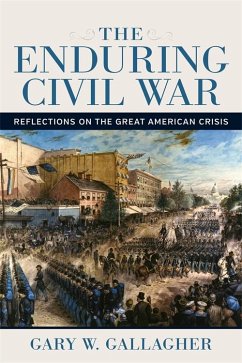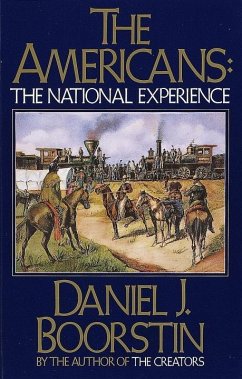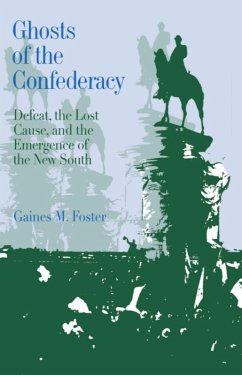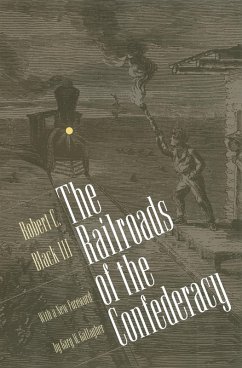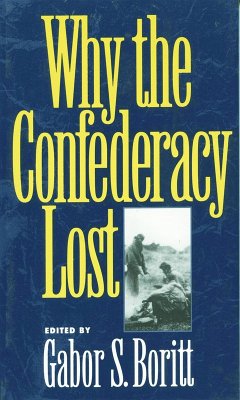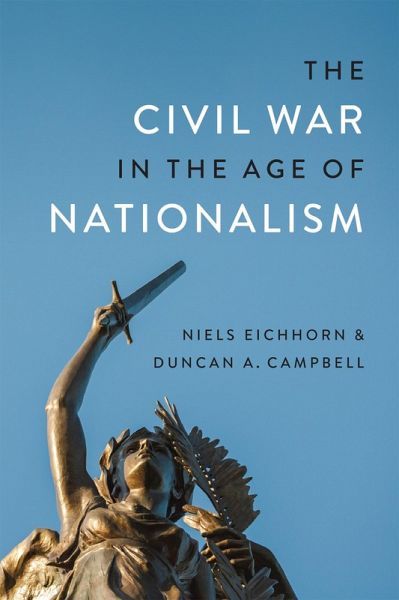
The Civil War in the Age of Nationalism (eBook, ePUB)
Versandkostenfrei!
Sofort per Download lieferbar
15,95 €
inkl. MwSt.
Weitere Ausgaben:

PAYBACK Punkte
8 °P sammeln!
While historians have acknowledged that the issues of race, slavery, and emancipation were not unique to the American Civil War, they have less frequently recognized the conflict's similarities to other global events. As renowned historian Carl Degler pointed out, the Civil War was "one among many" such conflicts during the mid-nineteenth century. Understanding the Civil War's place in world history requires placing it within a global context of other mid-nineteenth-century political, social, and cultural issues and events. In The Civil War in the Age of Nationalism, Niels Eichhorn and Duncan ...
While historians have acknowledged that the issues of race, slavery, and emancipation were not unique to the American Civil War, they have less frequently recognized the conflict's similarities to other global events. As renowned historian Carl Degler pointed out, the Civil War was "one among many" such conflicts during the mid-nineteenth century. Understanding the Civil War's place in world history requires placing it within a global context of other mid-nineteenth-century political, social, and cultural issues and events. In The Civil War in the Age of Nationalism, Niels Eichhorn and Duncan A. Campbell explore the conflict from this perspective, taking a transnational and comparative approach, with a particular focus on the period from the 1830s to the 1870s.
Eichhorn and Campbell examine the development of nationalism and its frequent manifestation, secession, by comparing the American experience with that of several other nations, including Germany, Hungary, and Brazil. They compare the Civil War to the Crimean and Franco-German wars to determine whether the American conflict was the first modern war. To gauge the potential of foreign intervention in the Civil War, they look to the time's developing international debate on the legality of intercession and mediation in other nations' insurgencies.
Using the experiences of Indigenous peoples in the Americas, Africa, and the Antipodes, Eichhorn and Campbell suggest the extent to which the United States was an imperial project. To examine realpolitik, they study four vastly different practitioners-Otto von Bismarck, Louis Napoleon, Count Cavour, and Abraham Lincoln. Finally, they compare emancipation in the United States to that in Peru and the end of forced servitude in Russia, closing with a comparison of the memorialization of the Civil War with the experiences of other post-emancipation societies and an examination of how other nations mythologized their past conflicts and ignored uncomfortable truths in the pursuit of reconciliation.
The Civil War in the Age of Nationalism avoids the limitations of American exceptionalism, making it the first genuine comparative and transnational study of the Civil War in an international context.
Eichhorn and Campbell examine the development of nationalism and its frequent manifestation, secession, by comparing the American experience with that of several other nations, including Germany, Hungary, and Brazil. They compare the Civil War to the Crimean and Franco-German wars to determine whether the American conflict was the first modern war. To gauge the potential of foreign intervention in the Civil War, they look to the time's developing international debate on the legality of intercession and mediation in other nations' insurgencies.
Using the experiences of Indigenous peoples in the Americas, Africa, and the Antipodes, Eichhorn and Campbell suggest the extent to which the United States was an imperial project. To examine realpolitik, they study four vastly different practitioners-Otto von Bismarck, Louis Napoleon, Count Cavour, and Abraham Lincoln. Finally, they compare emancipation in the United States to that in Peru and the end of forced servitude in Russia, closing with a comparison of the memorialization of the Civil War with the experiences of other post-emancipation societies and an examination of how other nations mythologized their past conflicts and ignored uncomfortable truths in the pursuit of reconciliation.
The Civil War in the Age of Nationalism avoids the limitations of American exceptionalism, making it the first genuine comparative and transnational study of the Civil War in an international context.
Dieser Download kann aus rechtlichen Gründen nur mit Rechnungsadresse in A, D ausgeliefert werden.






